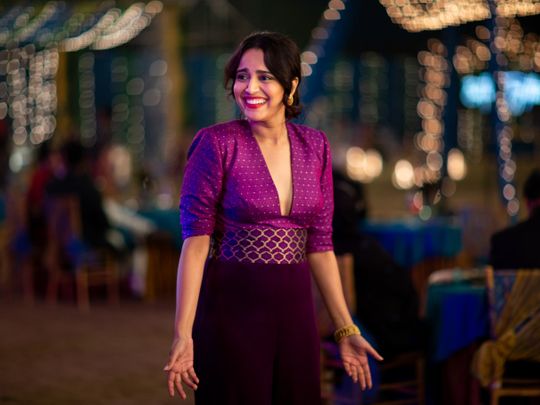Bollywood actress and activist Swara Bhasker has been on a roll in 2020.
New show ‘Bhaag Beanie Bhaag’ — a coming-of-age comedy that premiered on Neflix on December 4 — is her third web series of the year. But this achievement is tinged with guilt. In the movie she plays a runaway bride who pursues her dream of being a stand-up comic.
“I know it’s basically been a bad year for the whole world, but I have to say that I feel so blessed and grateful that I had three releases in a pandemic year — in a year where nobody was working … Thank God for the digital, OTT space and thank God for the internet because we wouldn’t have survived the pandemic without the internet,” said Bhasker over a Zoom video call from India.
From playing a fierce, potty-mouthed cop in ‘Flesh’ (streaming on Eros Now) to playing a teacher and temptress in the adult comedy ‘Rasbhari’ (streaming on Amazon Prime Video), Bhasker has dominated the female-fronted web series scene. So, have web platforms revolutionised stories about women?
“Bollywood has in the last four or five years become more open to female-forward and women-centric content and the nice part is that it’s doing well at the box office as well. But I think it’s the OTT platforms have just swung it for us. They have given us space and freedom and that’s one of the reasons why we are seeing a lot more interesting female characters.”
Her recent career moves are a testament to how producers and platforms are warming up to the idea of women in roles traditionally played by alpha male heroes.
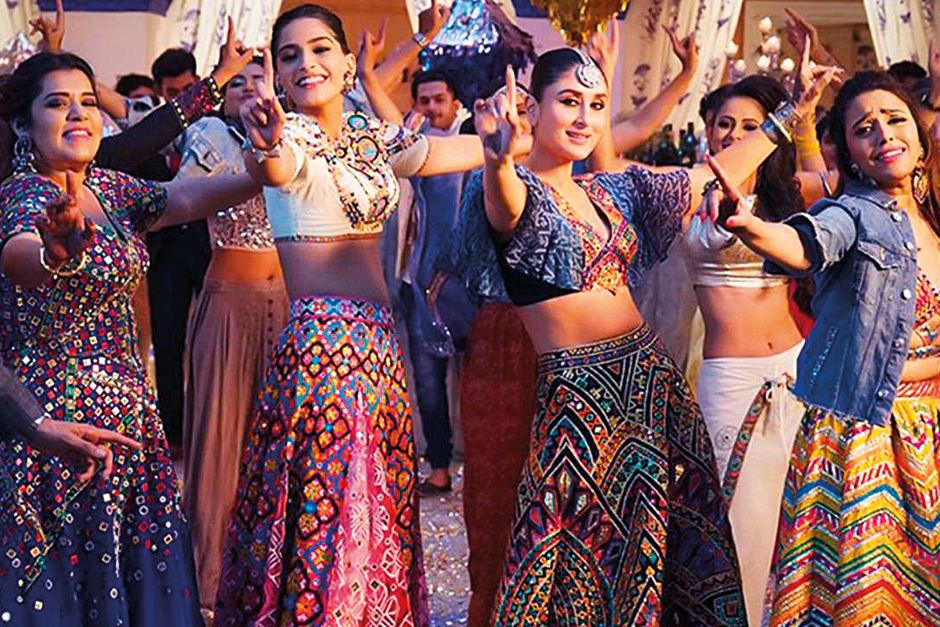
“For instance, in ‘Flesh’, I played a cop character where you normally see that kind of character played by a male hero. Such roles were deemed more palatable when played by male actors. Or in ‘Bhaag Beanie Bhaag’, I play a young woman and [portray] her journey in life … It’s like the ‘Wake Up Sid’ for girls,” said Bhasker, referring to the Ranbir Kapoor blockbuster where he played a rich, privileged 20-something discovering his own voice in Mumbai.
As soon as she compared her latest show to a male-led film, Bhasker reconsidered her words.
“I hope we have enough good content made so that we lose this vocabulary because we never specify films as ‘male-centric’ or we never describe a cop [film] as a male-centric action film. Do we ever describe ‘Dil Chahta Hai’ or ‘Zindagi Na Milegi Dobara’ as stories of male friendships? But I have noticed that ‘Veere Di Wedding’ is always described as a story of female friendships. So, I hope we lose this vocabulary sometime soon.”
In the hit friendship tale ‘Veere Di Wedding’, Bhasker played a rich, bratty woman who learns to find happiness on her own terms and gathers the guts to ask for a divorce. Invariably, this self-made star — one of Bollywood’s most outspoken and politically astute actresses — is the go-to person for nonconformist roles in Hindi-language projects.
“It’s a burden. I don’t know how I manage it. I was playing a rebel even in ‘Prem Rathan Dhan Payo’! I just don’t understand this,” said Bhasker, pointing to her film made by director Sooraj Bharjatya, who’s known for his saccharine, feel-good family entertainers.
Not really a rebel
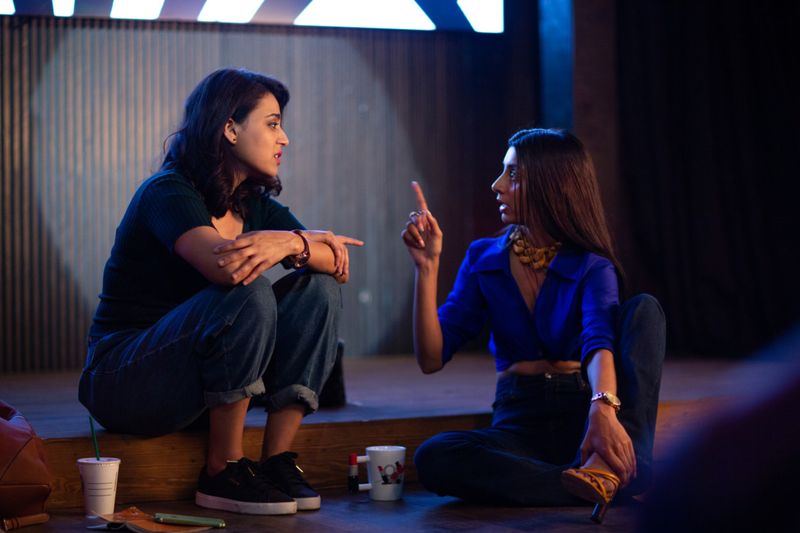
Bhasker lets us in on a secret. She’s a closet homebody unlike her vivacious activist-actress public persona.
“I want everyone to know I’m actually a really homely girl. I’m not a rebel in my personal space … Perhaps, I don’t need to rebel in my personal space because my parents are very liberal. In my family context I’m so secure and I am backed by parents who will support me no matter what. I’ve had so much support in my family, my brother, my friends, my extended family… that in the outside world I can play this role of a rebel whether it’s in my activist work or it’s in my acting work.” To underline her homebody existence, she claims that she’s big into maintaining ‘rishtedaari’ (family ties) and following rituals that are usually followed by traditional Indian women.
“Heck, I have no problem with anything, I don’t even have a problem with Karva Chauth, I’m that much not a rebel,” said Bhasker.
Karva Chauth is an annual ritual followed by married Hindu women where they observe a daylong fast for the long lives of their husband. Her idea of freedom and feminism all boils down to the right to free will.
“I just believe everyone should have the right to do what they want to do, that is what I feel about a lot of things … You can’t force people to think the way you want and I think as a feminist you have to allow women to choose. If a woman chooses to do something that is ritualistically and symbolically conservative then we should respect her choice … Different things mean different things to each person.”
Defying expectations
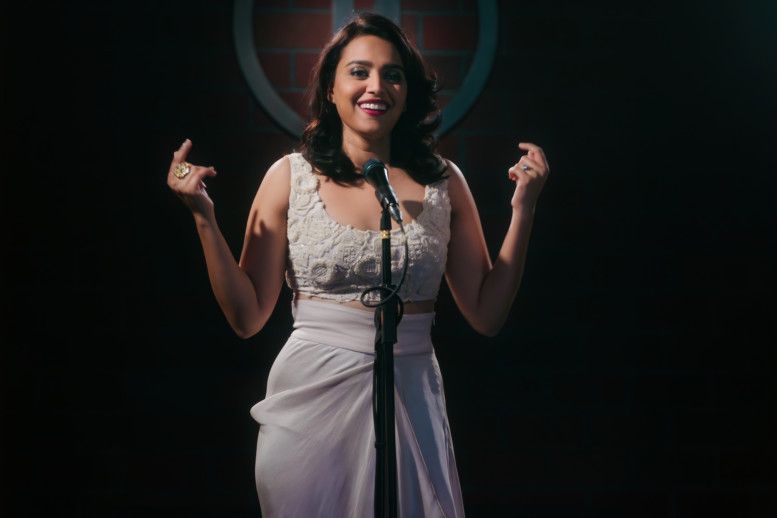
Her latest role in ‘Bhaag Beanie Bhaag’ sees a young woman find her own voice and break away from her parents’ and society’s expectations and norms.
“Beanie is very interesting because she’s basically a girl who, like so many young Indian women, are close to their family and are basically good girls. They have been brought up with a certain sense of family values and is taught to be obedient. Beanie is so obedient that without realising she has said yes to everyone else’s expectations.”
Be it her mum’s stern instruction to reach back home by 7.30pm or her father asking her to change her racy dress, to her boyfriend proposing marriage , Beanie’s answers are invariably ‘yes’ until the day she finds her spine to say ‘no’ to them.
The series about her turbulent quarter life crisis tracks her journey from being a yes woman to her own woman.
“Beanie is an educated woman and she has her own opinions and conflicts. And the moment she says no to the expectations of everyone else, all hell breaks loose. It’s her journey of self-discovery and you find out if Beanie is able to survive in the path she has finally chosen.”
The nicest thing about the show is that it’s very endearing and nobody is a villain … I mean even Beanie’s parents are struggling and trying to understand this new generation.
The series is a comment on Indian society and how girls are raised to conform to expectations and their struggles to balance their own desires against the desires of their families.
“The nicest thing about the show is that it’s very endearing and nobody is a villain … I mean even Beanie’s parents are struggling and trying to understand this new generation. They don’t know what stand-up comedy is … All they know is that they have given their daughter a proper English medium education, made her study MBA, kept her safe and protected. They want to someone to take care of her and ensure she’s safe. They are coming from a place of concern. So, nobody is a villain in this show.” But Bhasker has a theory to offset such kinds of intergenerational, cross-cultural conflicts.
“I feel the onus is on the kids to explain things to their parents. I feel Indian kids don’t stand up to their parents. So, if you actually stand up and put up a fight or at least put your argument across, parents will eventually come around. Remember, they can’t help it and they love us at the end of the day. Maybe they’ll be angry for aa while, but they will come around … Many Indian kids do not put enough of a fight and again the problem is that our culture teaches us to be unthinkingly obedient.”
Her titular role is also governed by an emotion that isn’t particularly helpful in life, believes Bhasker.
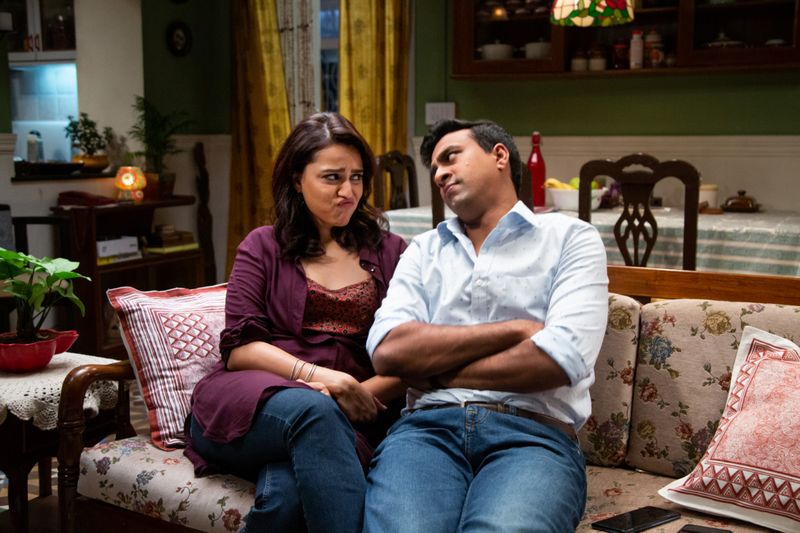
“Ultimately you really need to lose the fear — Whether it’s fear of our parents, whether it’s of society, whether it’s the fear of uncertainty that lies ahead … Beanie is scared of uncertainty and failure. Fear is the most negative emotion. It doesn’t help us at all.”
According to Bhasker, fear has no place in her life. The only emotions that make her tick are: Faith and conviction.
“Also, the knowledge that my family will be there for me whatever happens. My parents don’t get enough credit for this when many think of me as brave and courageous. Remember, I am brave only because my parents are behind me. I’m not scared of anything in the world because I know I can come home to my parents, no matter what. And that’s the everlasting gift parents can gift their children especially their girl children, let their children know that there will be there for them forever. I am in my 30s, but they are my biggest strength.”
Quote/Unquote
“I just feel like this year is so [expletive] that frankly we could all use a reason to smile,” said Bhasker on her new show ‘Bhaag Beanie Bhaag’.
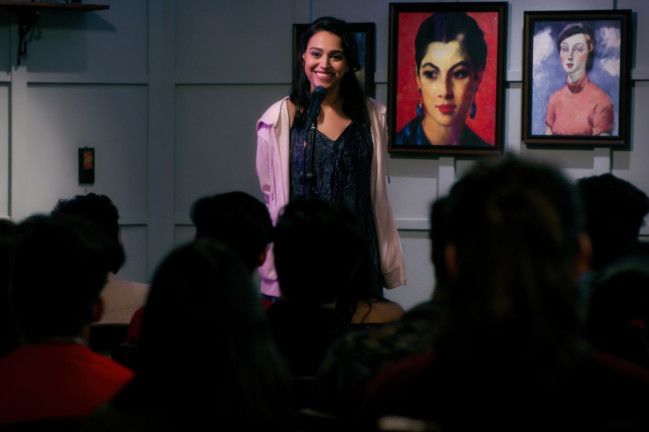
Quote/Unquote
“My father stalks on me on Instagram … It’s my biggest pleasure to bug my parents and yell at them … If I use swear words, the next 5 seconds I’ll have a text from my mom or dad saying, ‘Please don’t use this kind of language online’. My father even has a Google alert on me, so he keeps track on what is going on. But I’ve told them strictly not to read the comments because my mother used to read them and cry.”
Did you know?
‘Bhaag Beani Bhaag’ is being compared to the hit English-language show ‘Marvellous Mrs Maisel’.
“I am like, go ahead and compare. I don’t have any problems with that. I have not seen the show but I have heard it has won so many awards. I am actually flattered.”
Don’t miss it!
‘Bhaag Beanie Bhaag’ is out now Netflix.

